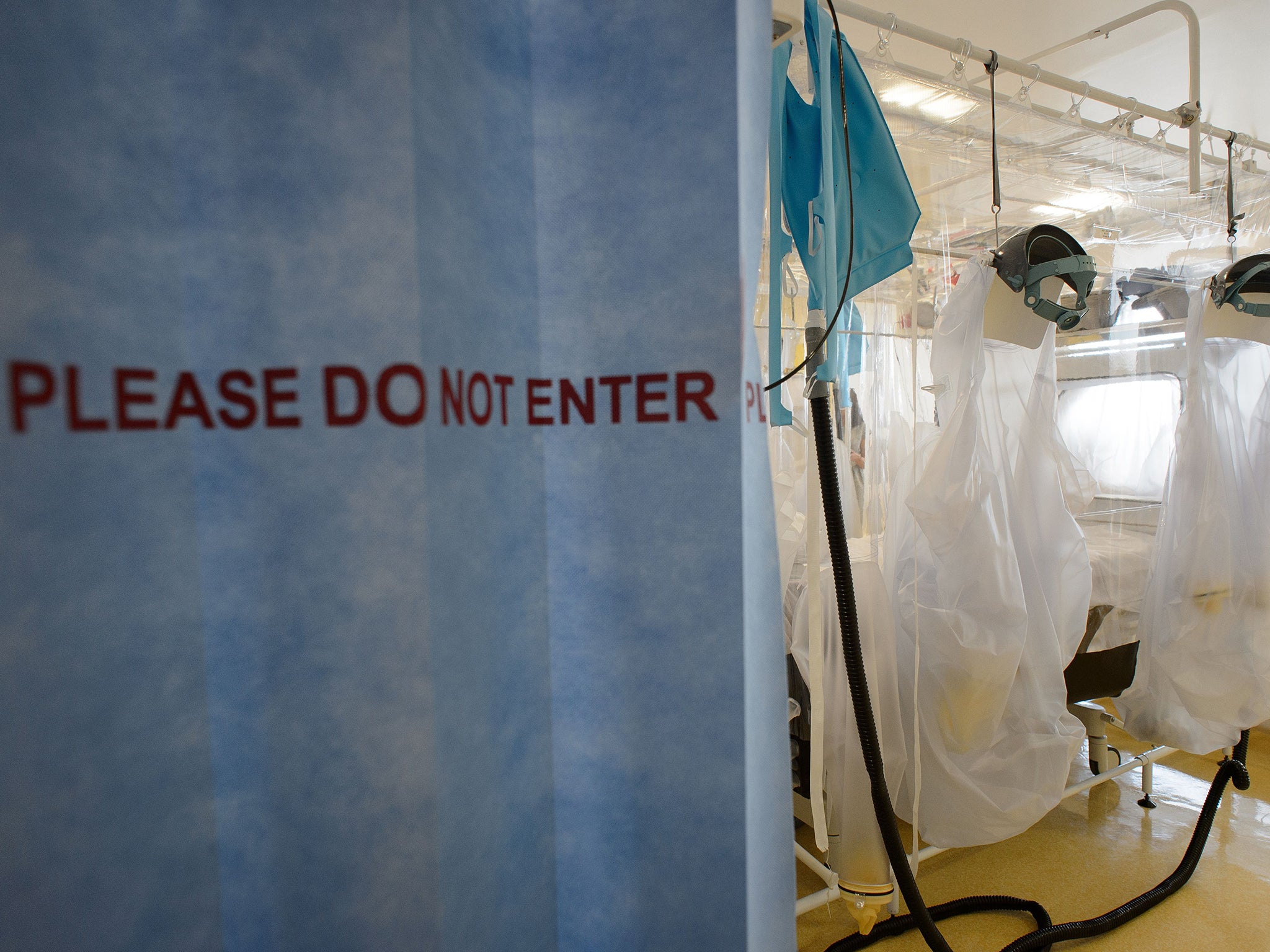Britain throws weight behind plans for flying-doctor unit to tackle world diseases
The move reflects growing concern among governments in the West that the world is unprepared to deal with outbreaks of contagious diseases

Britain will this week throw its weight behind ambitious plans to establish the world’s first specialist rapid response unit to tackle outbreaks of infectious diseases with the potential to kill millions.
David Cameron will use the G7 summit, which begins in Germany, to commit the UK to supporting the creation of a global team of scientists and medics who can be deployed within hours to combat potential pandemics.
The move reflects growing concern among governments in the West that the world is unprepared to deal with outbreaks of contagious diseases such as Ebola, which spread through three West African countries killing 11,000 people.
Scientists have warned that future epidemics are inevitable, as new viruses jump from animals to humans or mutate in ways that can make them a pandemic threat. South Korea is currently in a panic about Middle East Respiratory Syndrome (Mers), thought to be spread by camels, which has killed four, closed schools, and led to 3,000 people being quarantined.

Mr Cameron said: “The recent Ebola outbreak was a shocking reminder of the threat we all face from a disease outbreak. Despite the high number of deaths and devastation to the region, we got on the right side of it this time thanks to the tireless efforts of local and international health workers. But the reality is that we will face an outbreak like Ebola again, and that virus could be more aggressive and more difficult to contain. It is time to wake-up to that threat.”
There is a growing international consensus that the World Health Organisation (WHO) was not ready to deal with last year’s Ebola outbreak. Ebola, while deadly, does not easily transmit from person to person in its early stages. Had it been more infectious, the death toll would have been higher, and action to set up a more effective international unit to fight pandemics is long overdue.
The plan is to be discussed tomorrow in a G7 session on global security threats. Mr Cameron discussed the issue with US President Barack Obama earlier this year, and plans for the unit are likely to be announced at the end of the summit. Britain will commit to establishing a £20m research and development network to identify disease and infection risks. The Government will establish a rapid reaction force with up to 10 doctors on standby at any one time to deploy to the source of an outbreak within 48 hours.
Jeremy Farrar, the director of the Wellcome Trust, a London-based health charity, said the unit should come under the aegis of WHO, but be free of bureaucracy and able to act independently “in days” when a potentially fatal epidemic begins.
“With Ebola, it’s taken too long,” he said. “It’s nonsense to say: ‘Isn’t it great? We’ve done in a year what normally takes four or five years’. We’ve got to get into a mindset that says these infectious diseases can emerge in days and weeks, so we need to respond to that, not to some fanciful notion of an ideal world.”
Mr Farrar said German Chancellor Angela Merkel appeared supportive when he and other experts met her last month. The specialists, including Peter Piot, the director of the London School of Hygiene and Tropical Medicine and co-discoverer of the Ebola virus, foresee a rapid response unit of around 100 people, able to call on a reserve of up to 10,000 scientists worldwide. The reservists would include infectious diseases experts, virologists and epidemiologists.
“The world is already much better at detecting these things as they emerge, but what we need is the capacity to respond,” said Mr Farrar.
The rapid response operation could cost £65m-£130m a year, but Mr Farrar said this paled beside the hundreds of millions being spent on fighting Ebola, and regional economic losses estimated at £325m.
The G7 leaders are also expected to discuss Ukraine ahead of an EU summit later this month which is to decide whether to continue with European sanctions against Russia.
Downing Street sources said they hoped the G7 leaders would send a clear signal that sanctions should be continued. Under EU rules, any sanctions must be agreed by all 28 member states.
Some 22,000 police will provide security for the summit in the Alpine resort of Garmisch-Partenkirchen, with an estimated 8,000 protestors gathering to highlight issues including climate change, globalisation and poverty. Protest spokesman Simon Ernst said they wanted to show their anger at the leaders of the UK, US, Germany, France, Italy, Canada and Japan, calling them “the henchmen of bankers and corporations”.
Join our commenting forum
Join thought-provoking conversations, follow other Independent readers and see their replies
Comments
Bookmark popover
Removed from bookmarks